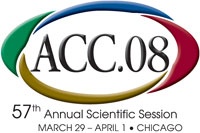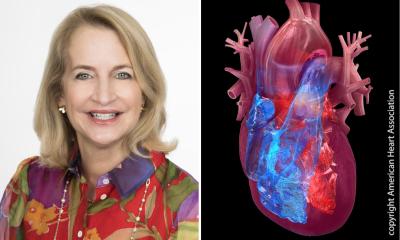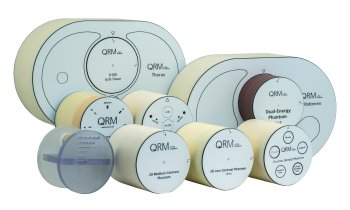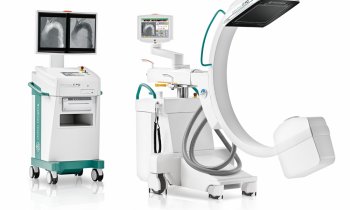Education and follow-up for heart failure patientes more effective
Today the key results of the Heart Failure Home Care trial, a study designed to assess the impact of a home-based heart failure monitoring system on healthcare costs for heart failure patients will be presented at the American College of Cardiology's 57th Annual Scientific Session (ACC.08).

The Heart Failure Home Care (HFHC) trial was designed to establish the success of these types of programs and assess the impact of a home-based heart failure monitoring system (HFMS: Alert Day Link Heart Failure Monitoring System) on the clinical and economic outcomes of Medicare beneficiaries recently hospitalized for heart failure. Specifically, whether or not the home-based HFMS could lower healthcare costs in a Medicare population of elderly patients representing the understudied—women and non-Caucasian males—and be adapted to the primary care setting.
Heart failure is the leading cause of hospitalization for patients over the age of 65 and the costs related to treatment and care can be overwhelming. For the most part, disease management program patients with heart failure have been advocated by both managed care programs and societal guidelines in order to improve patient compliance and decrease hospitalizations. The HFHC trial was a multi-center, randomized and controlled trial involving sophisticated monitoring of heart failure patients with an interactive program versus standard heart failure monitoring with enhanced education in Medicare-eligible patients. The study endpoints included cardiovascular death or re-hospitalization for heart failure, length of hospital stay, total patient cost and cost to Medicare at six months of enrollment.
A total of 315 patients were randomized: 160 to the HFMS and 155 to standard heart failure care (SC). There was no significant statistical difference between the groups in regards to six-month cardiac mortality, re-hospitalizations for heart failure or length of hospital stay. Of those, 292 patients had their Medicare data available; the information from the claims data was used to determine the cost to Medicare as well as the societal costs for those services covered by Medicare.
The HFHC trial challenges current practice for treatment and care of patients with heart failure. One key result of the trial is that the addition of a sophisticated heart failure monitoring device combined with an interactive program is not any more effective than standard heart failure monitoring with enhanced education in a cohort of elderly patients enriched for both women and non-white males with heart failure.
It is also more costly. The six month mean total societal costs were estimated to be $20,190 and $15,966 for the HFMS and the SC groups respectively, while the six month mean Medicare costs were estimated to be $17,837 and $13,886, respectively.
“Study results indicate that in pharmacologically well-treated and well-informed patients there is relatively little room left for altering the natural course of the disease,” said Ozlem Soran, M.D., M.P.H., Research Associate Professor of Medicine, Research Associate Professor of Epidemiology and Director of EECP Research Lab and Cardiovascular Institute, University of Pittsburgh, and lead author of the study. “The results of our study demonstrate that enhanced patient education and follow-up is as successful as a home monitoring device with an interactive program and is less costly for patients who are elderly, either women or non-Caucasian males and receive the care from a community-based primary care practitioner.”
02.04.2008









